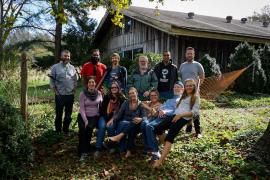What Can We Learn from the Amish?
First, a connection to the land is vital. If at all possible, live on the land, work the land, care for the land, be one with the land, and grow at least part of your own food so you have a physical connection to it. Even if you live in town, regain that connection to the land by working your little plot or pot of soil.








